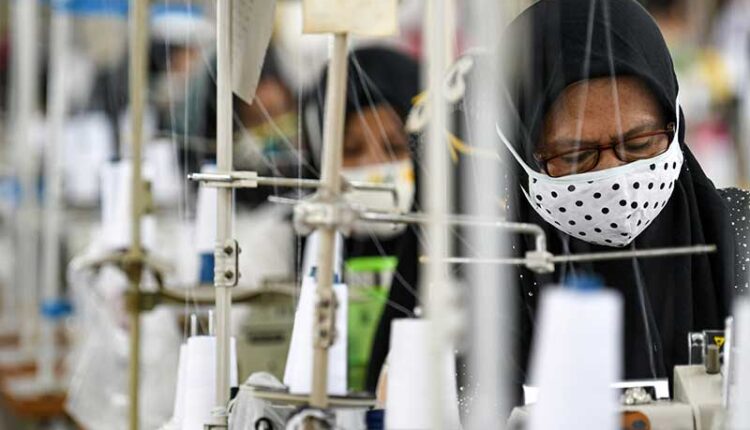The Government Provides Better Protection for Workers Through the Job Creation Act
By: Aulia Hawa )*
The government seeks to provide protection to workers through the implementation of the Job Creation Act. With this baleid, the welfare of workers is guaranteed and investment in Indonesia will be easier.
The Job Creation Law (UU Ciptaker) was opposed by several parties who felt that this debureaucratization effort was not in favor of workers or laborers. Of course, before we think like that, we need to look at the evidence that the Copyright Act also has regulations that protect workers.
The hoax news circulating is that foreign workers are free to enter Indonesia. Of course, responding to the news we should refer to article 42.
Let’s look at Law Number 13 of 2003 concerning Manpower Article 42 paragraph 4 which reads: Foreign workers can be employed in Indonesia only in a working relationship for a certain position and a certain time. In the Copyright Act, it is changed to foreign workers who can be employed in Indonesia only in a working relationship for a certain position and a certain time and have competence in accordance with the position to be occupied.
This of course shows that the Ciptaker Law clearly explains that not just any foreign worker can enter the country. Therefore, it is not appropriate if the Ciptaker Law is considered a law that makes foreign workers free to seize jobs that should be the rights of the Indonesian people.
There are also rumors circulating in the public saying that contract workers have their rights suppressed and marginalized. In fact it is not so. In Article 61 paragraphs 1-3 concerning work agreements for a certain time (contracts) workers will still be given compensation according to the period of service to workers.
In the article it reads:
Paragraph 1, In the event that the PKWT ends, the entrepreneur is obliged to provide compensation money to the worker/labourer.
Paragraph 2, Compensation money is given according to the working period of the worker/labor.
Paragraph 3, Further provisions regarding compensation money are regulated by PP.
Meanwhile, in article 59 paragraph 2 which reads, a work agreement for a certain time cannot be made for permanent work, the article implies that a person whose status has become a permanent worker cannot be turned into a contract.
From the article, it is clear that concerns related to employers who can act arbitrarily by tampering with status and work contracts are not given space by this universal sweeping law. This law actually upholds the principle of fairness in the context of the relationship between employers and workers.
In addition, workers also remain safe if they are threatened with unemployment, the article in the Job Creation Law states that every worker who loses his job is entitled to a Job Loss Guarantee (JKP) from BPJS Ketenagakerjaan whose budget is not collected from the worker or employer or from the APBN.
The provision of JKP also does not reduce the benefits of other guarantees such as Work Accident Insurance (JKK), Death Security (JKM), Old Age Security (JHT) and Pension Security (JP). Referring to this, of course it is worth rethinking whether the Job Creation Law is detrimental to workers or actually provides protection for workers.
Previously, Mahfud MD as the Coordinating Minister for Political, Legal and Security Affairs (Menko Polhukam), regretted the high number of fake news or hoaxes on social media surrounding the Omnibus Law on Job Creation. He emphasized that the government did not reject the existence of discussions to explain the problem regarding the job creation law. But the data must be accurate, not based on hoaxes.
Mahfud also hopes that broadcasters can assist the government in efforts to clear up information about the Job Creation Act to the public. This can be done through the distribution of public service advertisement broadcasts.
It was also circulated that after the work creation law was passed, workers would get wages calculated on an hourly basis. Referring to Article 88B Chapter IV concerning manpower, it is stated that wages are determined based on units of time, and/or units of results. Further provisions will be regulated in PP. With units of time there is no rule stating wages based on hours.
Labor is the party who is obliged to be the beneficiary of the existence of the Job Creation Law, because after all, workers have a role in the turning of the wheels of the economy in Indonesia so that their existence deserves attention and protection.
)* The author is a contributor to Pertiwi Institute
